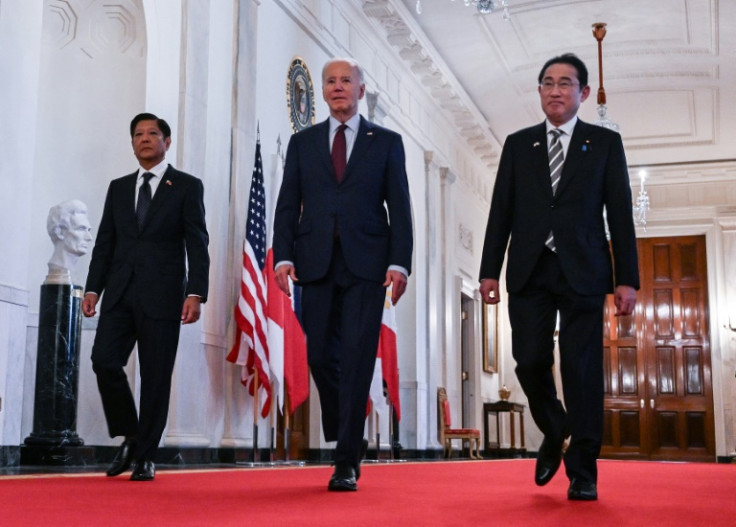
Beijing on Friday criticized the United States, Japan and the Philippines and defended its actions in the South China Sea as "lawful" after US President Joe Biden hosted a trilateral meeting in Washington.
Biden on Thursday pledged to defend the Philippines from any attack in the South China Sea at the White House summit, which came amid repeated confrontations between Chinese and Philippine vessels in the disputed waterway that have raised fears of wider conflict.
A joint statement issued by the leaders of the trio of nations voiced "serious concern" over Beijing's actions in the South China Sea, slamming its behavior as "dangerous and aggressive".
Beijing claims almost the entirety of the South China Sea, brushing aside competing claims from several Southeast Asian nations including the Philippines.
On Friday China hit out at the joint summit in Washington, with foreign ministry spokeswoman Mao Ning saying Beijing "firmly opposes the relevant countries manipulating bloc politics, and firmly opposes any behavior that provokes or lays plans for opposition, and hurts other countries' strategic security and interests".
"We firmly oppose engaging in closed cliques that exclude others in the region," Mao told a regular press conference.
"Japan and the Philippines can of course develop normal relations with other countries, but they should not invite factional opposition into the region, much less engage in trilateral cooperation at the cost of hurting another country's interests.
"If these are not wanton smears and attacks on China, what are they?" she said.
"China's actions in the East China Sea and South China Sea are appropriate and lawful, and beyond reproach," Mao added.
On Thursday Biden told Philippines President Ferdinand Marcos Jr and Japanese Prime Minister Fumio Kishida that the United States' defense commitments to Japan and to the Philippines are "ironclad".
As they met around a horseshoe-shaped wooden table in the grand East Room of the US presidential residence, the US, Japanese and Philippine leaders hailed the meeting as "historic."
Without mentioning China by name, they painted their alliance as a bedrock of peace and democracy in the Asia-Pacific region in contrast to authoritarian Beijing.
Marcos, seen as closer to Washington than his more China-leaning predecessor Rodrigo Duterte, said they shared an "unwavering commitment to the rules-based international order."
Kishida said that "multi-layered cooperation is essential" and that "today's meeting will make history."
Biden, 81, also held separate talks with Marcos, 66, the son and namesake of the country's former dictator.







